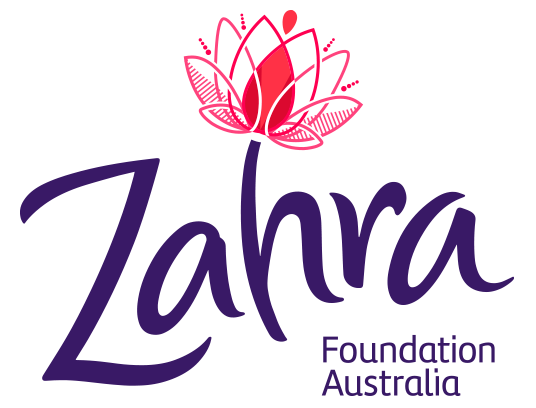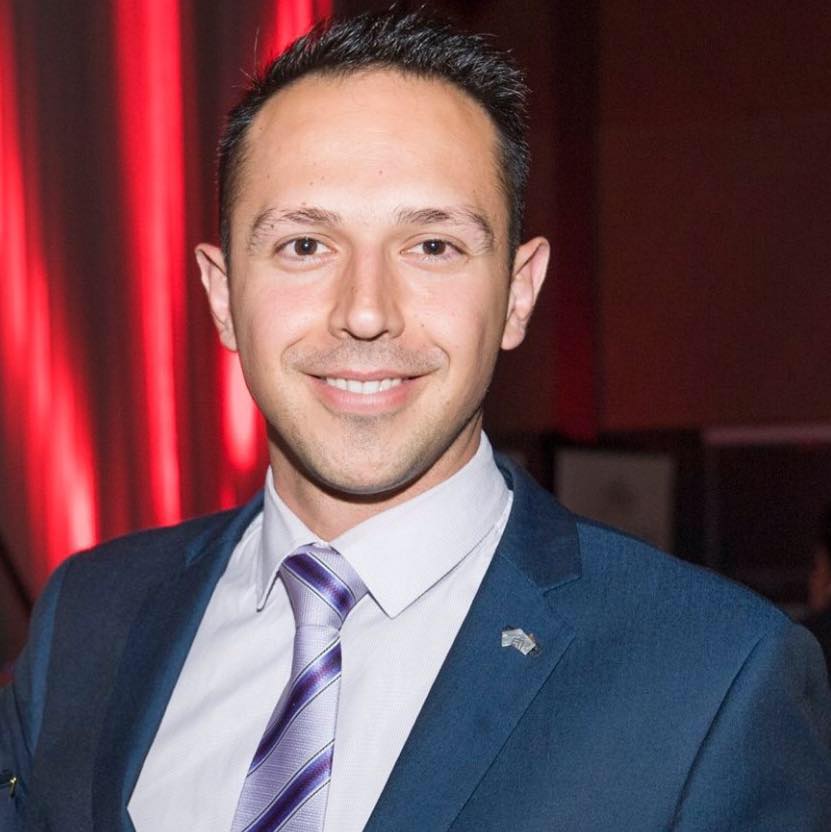On the 21st of March 2010, whilst celebrating her 44th birthday Zahra Abrahimzadeh was murdered by her husband Ziaollah in front of their daughter and more than 300 witnesses.
Chillingly, in his 2016 TEDx talk middle child Arman Abrahimzadeh says that he and his sisters ‘saw this murder coming, and it could have been stopped, it could have been prevented’.
When Arman was ten years old, he migrated from Iran to Australia with his parents and older sister Atena. Tension and abuse were ever-present in their family home, and as the years went on the violence only escalated. Ziaollah Abrahimzadeh beat and whipped his family, threw his wife against a window, snapped a telephone aerial against Atena’s throat and scalded her fingers to stop her nail-biting habit. Ziaollah never showed any affection and was unable to express himself emotionally – a feature which struck Arman as especially odd when as a teen he visited friends’ homes and saw the way other fathers interacted with their children.
“I started to notice what was going on at home wasn’t normal. My dad didn’t like my sister talking to boys and I wasn’t allowed to bring any girls home. My father was controlling what we spent money on, who we could talk to, and who we could associate with. He was always manipulating us so that he looked like the good guy and the other party looked like the bad guy.”
At fifteen years old Arman was strong enough to interfere in his parents’ arguments, acting as a physical barrier to prevent his father from hitting his mother. They felt isolated in their fear and suffering because while Ziaollah had family in Adelaide, it wasn’t safe to reveal to them what was happening in the family home. Zahra had no family in Australia, and spoke little English. At the time, there was very few options presented to the family, so they did the best they could to survive in that environment, until Arman was 21 years old.

Zahra Abrahimzadeh celebrating her birthday
When in his final year of university, Arman was woken late at night by his parents’ screams. This violence was nothing out of the ordinary, yet on this occasion attempts to intervene were unsuccessful. The children and their mother had faced many threats and beatings over the years, they had seen it all and heard it all, but the look in their father’s eyes that night as he threatened to kill them will haunt Arman forever:
“As he started running towards the kitchen, I chased after him, and my older sister and I managed to wrestle my dad away from the drawer where the knives were kept. We tried to talk to him, and understand what his issue was. When he saw that he couldn’t arm himself and that my sister and I were on top of the situation and watching him, he cornered us and said, ‘You can’t watch me 24/7 and when you’re least expecting it, I’ll lock you all in the house and I’ll burn the house down with all of you inside it’.”
This threat was the catalyst for Zahra and the children to pack their bags and flee. At the time Arman and his older sister were both in their final year of study, his younger sister was eleven years old and Zahra was unemployed. Consequently they lived in the car for a time. Although the incidents had been reported to the police, it took some time for these reports to be processed. A domestic violence service was soon able to find the family accommodation in a safe house and allocate a case manager so that Zahra could receive help , guidance and emotional support. Despite having an intervention order taken out against him, Ziaollah stalked the family to the point where they felt forced to move house at least twice that year.
A year after they originally fled the family home, Zahra chose to start living the life she had always dreamt of. As part of this new outlook, Zahra chose to celebrate her 44th birthday by taking one of her daughters to a Persian New Year gathering. Little did she know that Ziaollah was there, waiting for what he believed to be the ‘perfect moment’ to stab her to death. Arman remembers the aftermath as a scene from a horror movie:
“As I was running into the room, people were running out of the room, crying and screaming. There’s one door to the room and I was pushing against the flow, trying to see what people were fleeing from. The next thing I see is my mum lying down in a pool of her own blood after, ambulance services around, police officers around, venue staff and security guards surrounding her and a white cloth being prepared to put over her. My mum was taken to the hospital a kilometre down the road then we were told she had passed away.”
Their life then became a maze of legal cases, including a family court matter, property settlement, and custody battles because his younger sister Anita was twelve years old. The murder trial against Ziaollah was held, then the coroner’s inquest and the coroner’s court trial. With the conclusion of these legal proceedings, the suppression order which had up until then silenced Zahra’s children was lifted.
“My older sister and I started speaking out about what went on behind closed doors and the true meaning of domestic violence. It’s not just murder or manslaughter and all the horrifying acts you see on the news. The spectrum is a lot broader than that. It can include verbal abuse, psychological abuse, emotional abuse and financial abuse.”
The domestic violence service that initially came to the aid of the Abrahimzadeh family had provided exceptional support.Throughout the trial they became like family to the children, touching base constantly. After the trial, Arman and Atena met with the CEO of the service to discuss an organisation they could establish in honour of their mother. In the hope of addressing a gap within the domestic violence sector they visited existing services speaking to managers. They received anecdotal evidence to suggest that shelters can only assist for the first three, six or twelve months, after which domestic violence survivors found it difficult to create a sustainable lifestyle because financial control had been taken away from them. These people often didn’t earn an independent income and so experienced financial hardship when they chose to leave their abuser.
And so the Zahra Foundation was born in 2015, with the objective of increasing the financial literacy and economic empowerment of women and children in South Australia. The foundation runs programs and workshops including:
- a Pathway to Employment program, at the completion of which ninety percent of participants were successful in landing employment, volunteer positions or undertaking further education;
- financial information and money management sessions;
- yoga classes;
- cooking classes, where participants were taught how to prepare healthy and low-cost meals;
- art therapy classes;
- fitness classes;
- workshops for people of culturally diverse backgrounds.

The organisation also offers a free, specialised counselling service, and a small grants program offering up to $500 to domestic violence survivors associated with a domestic violence service. The Zahra Foundation is not government-funded, relying on donations and corporate sponsors. Arman attributes much of the organisation’s success to its base being in Adelaide, which is essentially a big country town:
“When I speak about the foundation a lot of people have heard about it; we’ve managed to get the conversation going, so that’s a good start.”
Arman does not work in the foundation, instead making a living in design and construction. Life can be quite busy, but his mother’s experience serves as a constant reminder as to why it is so important to continue helping the women and children who approach the organisation.
In 2016, Arman was named the Young South Australian of the Year after being nominated by a friend. Unsurprisingly given his generous nature, at the time of the announcement, Arman was visiting the Philippines volunteering in an orphanage. He dedicated the award to his mother and acknowledged the many great domestic violence services, gender equality services and initiatives in the sector. Although deeply honoured to receive the award, it sat uneasy with him – Arman had only been advocating for three years, while there are organisations and individuals who had been in the sector for thirty to forty years. As a way of paying tribute to such advocates, Arman visited different services throughout 2016 and presented the award to them so they could keep it for a month. The award now sits at the Zahra Foundation Australia office next to a picture of his mother.
Arman believes it is thanks to the tireless work of people like Rosie Batty that Australia has acknowledged the existence and insidious nature of domestic violence.
 Yet The White Ribbon Ambassador still has a lot of work to do to reduce the incidence of domestic violence, including involving men in more conversations around domestic violence to help them understand the role they play, improving rehabilitation services for offenders and targeting cultures where ‘the harden up mentality’ is promoted. For, Arman says, domestic violence can not be attributed to the culture of a particular country, but rather to the culture of ‘toxic masculinity’.
Yet The White Ribbon Ambassador still has a lot of work to do to reduce the incidence of domestic violence, including involving men in more conversations around domestic violence to help them understand the role they play, improving rehabilitation services for offenders and targeting cultures where ‘the harden up mentality’ is promoted. For, Arman says, domestic violence can not be attributed to the culture of a particular country, but rather to the culture of ‘toxic masculinity’.
To donate to The Zahra Foundation, please visit https://donation.giveeasy.org/zahra-foundation or to find out more visit http://zahrafoundation.org.au.






